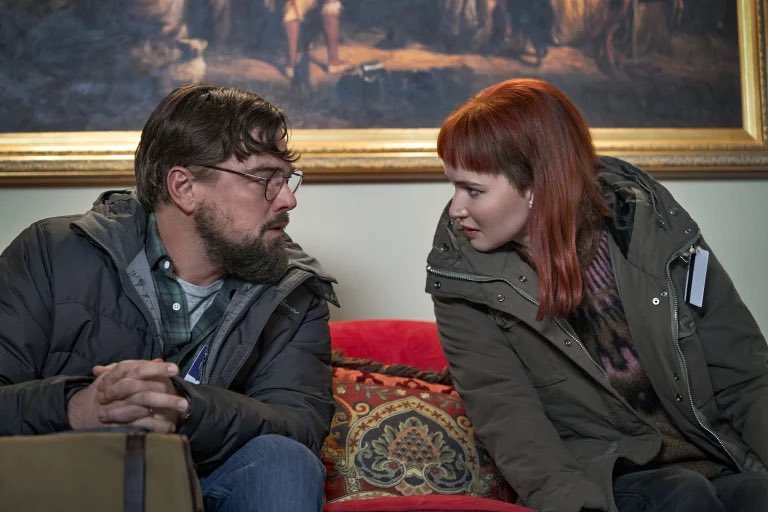
Don’t Look Up: The perilous connection between facts and fiction
By Frankie Berardino, January 5 2022—
Set in a seemingly typical modern world, Don’t Look Up is a comedy-disaster fusion film depicting two astronomers from Michigan who discover a comet hurling directly toward Earth.
The film takes its viewer on a journey, revealing how realistic dystopian scenarios are during the 21st century. Drawing parallels to the handling of the COVID-19 pandemic, climate change and the cracks in our democracies, Don’t Look Up gives its viewers a brief dive into the world of science communication, opinion-based media and wealth inequalities — all of which are prevalent under the star-spangled banner and beyond.
After briefly watching the trailer, I agreed to a ticket and jetted off to the cinema. The film follows the astronomers as they fight for scientific truth in a frenzy of media and misinformation. Which ultimately leads to (spoiler alert) the entire world being destroyed by the comet.
Expecting a light-hearted story of hardship then triumph, I wasn’t prepared for how scarily accurate I could imagine the film unraveling in real life.
Despite the majority of the star-studded acting being improvised, and the science in the plot being a little off, the film brought a perspective known all too well by most. From the fixation on social media to the far-right backlash and distrust in science, I cried in the cinema with my $8.75 buttered popcorn in hand.
Our democracies and communities are crumbling and unprepared for large-scale disasters of any kind. Backed by our recent failures in fighting the COVID-19 pandemic and resistance to vaccination, as a society, we are overwhelmingly underprepared for our future. This is terrifying.
With the climate crisis set to cause catastrophic events and potentially throw the environment into a pseudo-state of armageddon, we are truly on the brink of collapse. Even as an immature 22-year-old, I can feel the magnitude of how fragile we are.
On the bright side, the film depicts that there is some hope. Multiple efforts at destroying the comet would have worked if it weren’t for political turmoil. In other words, despite the growing numbers of distrust in science from the far-right and far-left, there is a willingness to listen to science.
As a science student with a hopeful future in the scientific community, this shred of hope is somewhat comforting. In a sense, from the most naive perspective, this reflects that we might have a chance if the world quickly moves toward the path of science. Nonetheless, there is still cause for concern.
Despite evident anthropogenic climatic impacts in countries like Bangladesh and melting-sea ice in the Arctic, the machine of economic success at the expense of nature prevails. Don’t Look Up is fiction, but many of our greatest world problems are not. And the main takeaway from this almost satirical mess, is that something in humanity needs to change.
